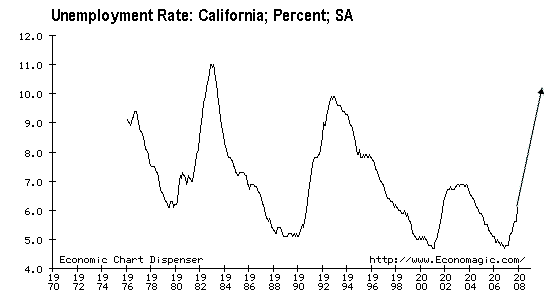Housing Bust Ending? Hope Springs Eternal.
This article appeared December 2006.
Marker Color Codes:
January 2008: exactly 36,795 or nearly 3 out of 100 homes are in the forclosure process.
Does that sound like "stabilizing" to you?
This article appeared December 2006.
Los Angeles - An Example of A Market Stabilizing
Dec. 20, 2006 (The Real Estate Bloggers)
"I think that the turn has occurred by another metric. The media is doing articles on how surprised they are that their prognostications of a total collapse were wrong. Now we are seeing a flurry of isn’t this amazing the market is holding up stories."
But the picture of Los Angeles below from Foreclosureradar.com a year later tells a different story.Dec. 20, 2006 (The Real Estate Bloggers)
"I think that the turn has occurred by another metric. The media is doing articles on how surprised they are that their prognostications of a total collapse were wrong. Now we are seeing a flurry of isn’t this amazing the market is holding up stories."
Marker Color Codes:
Green: Pre-foreclosure
Blue: Auction Scheduled
Red: Bank Owned
Blue: Auction Scheduled
Red: Bank Owned

January 2007: exactly 14,789 homes in LA County in pre-foreclosure, foreclosure, or returned to lender at foreclosure auction; approximately 1 out of 100 homes.
January 2008: exactly 36,795 or nearly 3 out of 100 homes are in the forclosure process.
Does that sound like "stabilizing" to you?


Comment